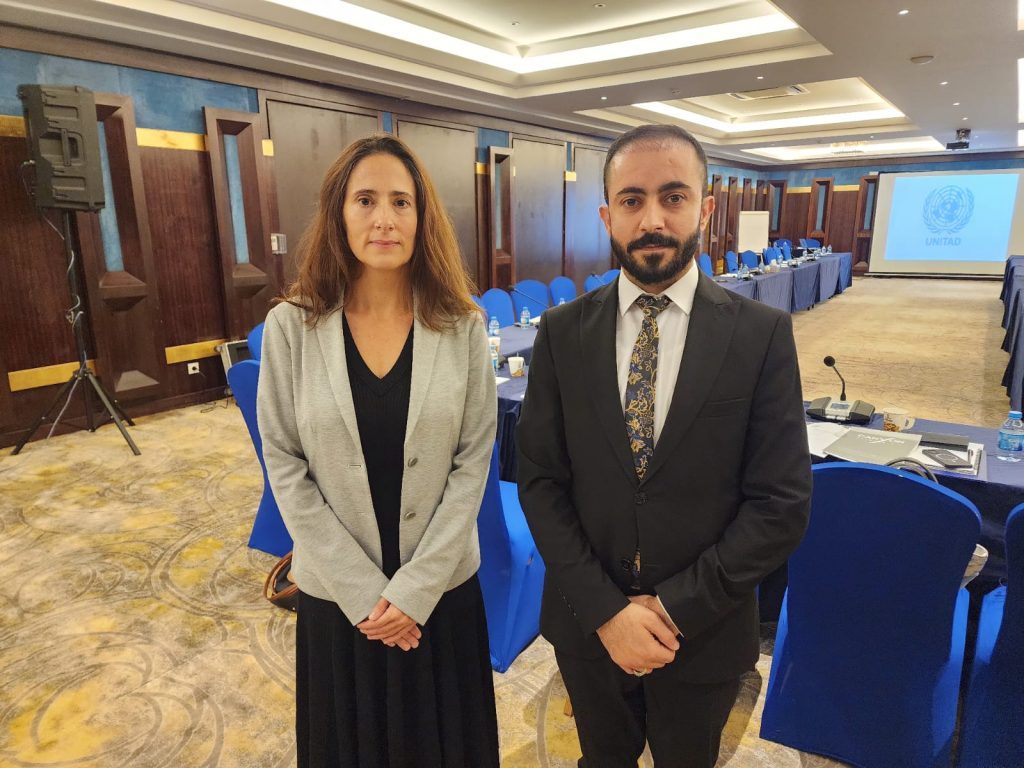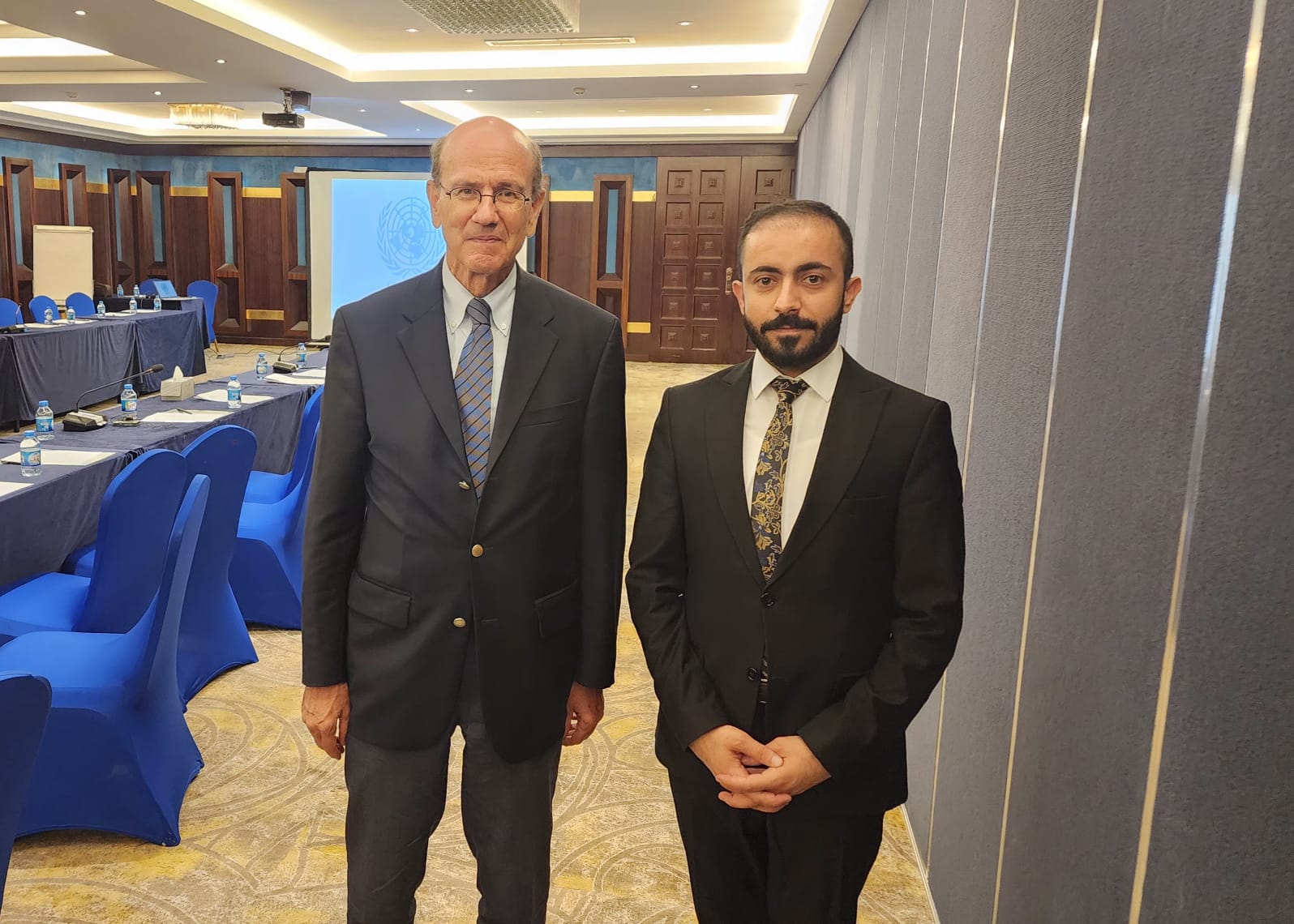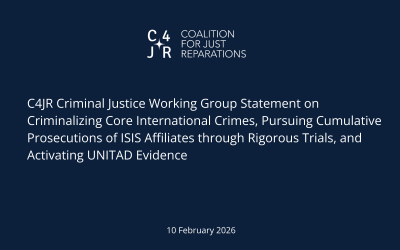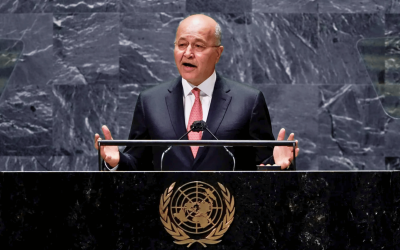ERBIL, Kurdistan Region of Iraq — On Thursday 11 July, members of the Coalition for Just Reparations (C4JR) Criminal Justice Working Group, including Hasan Jameel, met with Acting Special Adviser and Head of UNITAD, Ms. Ana Peyró Llopis, and the United Nations Secretary General’s Assistant Secretary-General for Legal Affairs, Mr. Stephen Mathias, in Erbil to discuss the wind-down of the United Nations Investigative Team to Promote Accountability for Crimes Committed by Da’esh/ISIL (UNITAD), and what the way forward after UNITAD may look like.
Assistant Secretary-General for Legal Affairs, Mr. Stephen Mathias, spoke about the efforts of his office post-UNITAD. He told the audience that the UN aims to maintain all evidence to be available to all who seek to benefit from it, which is why they have two options; the first one being that all evidence will be stored in the UN with no access to it, and second way that the United Nations Security Council would approve an enhanced archiving system in which all the evidence is stored in a way that it can be accessed to be used for prosecution purposes.
However, Mathias highlighted two critical restrictions on access to this evidence. Firstly, the consent of the person who provided the statement must be obtained before the information can be shared. Secondly, the country requesting the information must not use it in a manner that could lead to the death penalty. If the enhanced archiving system is not approved, all data will be stored but will remain inaccessible. Iraq has requested that if the enhanced archiving system is approved, Iraqi approval should be obtained before sharing the information with third states; a request that has not been accepted by the UN at this time.

Mathias urged organisations to advocate for the enhanced archiving system by reaching out to the Security Council. Peyró Llopis also mentioned that no further excavations of mass graves would be conducted for the remaining period of UNITAD’s mandate.
Hasan Jameel, C4JR’s Criminal Justice Working Group coordinator, emphasised, “The collaboration between UNITAD and C4JR has been instrumental in advancing justice for the victims of ISIL’s heinous crimes. We must continue to push for systems that allow this vital evidence to be used effectively.”
One of the main challenges in advocating for the enhanced archiving system is gaining the support of the Security Council. C4JR plans to continue its engagement with international human rights organisations and member states to build a coalition that can influence this decision-making process.
In conclusion, C4JR’s meeting with UNITAD and UN officials underscored the importance of maintaining access to evidence for future prosecutions while adhering to international legal standards. The group will continue to push for the enhanced archiving system and coordinate reparations efforts with the Iraqi government, ensuring that justice for the victims of ISIL’s atrocities remains a priority.



